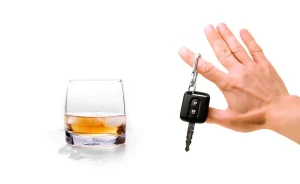
While alcohol fog is not a life-threatening condition, it can be a sign of an underlying health problem that will definitely benefit from early diagnosis and early recovery. Common hormonal imbalances that can cause brain fog include low thyroid hormone levels (hypothyroidism) and high cortisol levels (adrenal fatigue). Liver damage can lead to a build-up of toxins in the blood, which can cause a range of symptoms, including brain fog. The direct effects of alcohol on the brain are thought to play a significant role in alcoholic brain fog. There are many support options available that can help guide you through alcohol withdrawal, as well as abstaining from alcohol after withdrawal.

Disrupted Sleep
Our daily research-backed readings teach you the neuroscience of alcohol, and our in-app Toolkit provides the resources and activities you need to navigate each challenge. Brain fog can be caused by various factors, such as lack of sleep, stress, malnutrition, medication, neuroinflammation, and the use of certain substances, such as alcohol. Cut yourself off from caffeine by six hours before bedtime, and drink plenty of water and other hydrating beverages. Set aside 30 minutes before retiring to engage in a wind-down routine, such as taking a warm bath or meditating. If possible, be consistent with the time you go to bed and what time you get up in the morning.
After 3 Days Without Alcohol
This is because exercise can help to improve blood flow to the brain and reduce stress levels. Remember you are facing a difficult challenge during alcohol withdrawal, alcohol brain fog but you are not alone. There are many resources available to help, including peer support groups, counseling, therapy, and inpatient rehabilitation.

Can alcohol cause permanent cognitive impairment?
In an acute sense, consumption of alcohol can lead to uninhibited behavior, sedation, lapses in judgment, and impairments in motor function. As anyone who’s consumed alcohol knows, ethanol can directly influence brain function. Ethanol is classified as a “depressant” because it has a generally slowing effect on brain activity through activation of γ-aminobutyric acid (GABA) pathways.
Factors Influencing Brain Fog Recovery Time
Medical supervision, behavioral health treatment, and mutual-aid groups can help you through alcohol withdrawal and stay stopped. This article discusses alcohol withdrawal, its symptoms, and potential complications. It also provides an overview of the alcohol withdrawal timeline process and when to discuss your drinking with your healthcare provider.
Getting enough sleep
Medication, such as Naltrexone and Acamprosate, can help reduce cravings and prevent relapse, offering a powerful tool in the fight against addiction. A medical professional will be able to rule out any other potential causes of your symptoms and provide the appropriate treatment process for you, including alcohol addiction treatment. While brain fog after drinking can happen to anyone who drinks alcohol, https://ecosoberhouse.com/ it is more common in people who drink heavily or who have alcohol use disorder. People with alcohol use disorder should be monitored by a medical professional when withdrawing from alcohol. Moderate to heavy drinkers can also benefit from medical supervision in the acute withdrawal stage. For most people, alcohol withdrawal symptoms will begin sometime in the first eight hours after their final drink.
- These dual, powerful reinforcing effects help explain why some people drink and why some people use alcohol to excess.
- When it comes to alcohol’s effects on the brain, the consequences are profound.
- Recovery from alcohol addiction is a lifelong journey that requires ongoing commitment and support.
- While “brain fog” is not a medical term, it’s widely used to describe symptoms like confusion, forgetfulness, lack of focus, and mental clarity.
The consumption of alcohol leads to an interference with neurotransmitters and negatively affects overall brain health, causing what we know as alcohol brain fog. Alcohol can potentially reduce the flow of oxygen to the brain and increase inflammation, thus affecting its functioning. If you are thinking about quitting drinking, talk to your healthcare provider.
- To achieve long-term sobriety and maintain a fulfilling life, individuals need to engage in various aspects of aftercare and relapse prevention.
- A recently released study by the RAND research group revealed the many ways that sleep deprivation negatively affects brain function.
- After only one night of poor sleep, our cognitive functions and performance start to decline.
- The most common symptoms of dementia include memory loss, problems with language, and difficulty with planning and decision-making.
Dual Diagnosis 101: How Mental Health Disorders and Substance Use Disorder Often go Hand in Hand

It’s like giving your brain a breath of fresh air after being submerged underwater for an extended period. If you think you or someone you know may be struggling with alcohol addiction, it is vital to seek professional help as soon as possible. It can be caused by a number of different factors, including alcohol addiction. Suppose you are struggling to manage your stress levels and alcohol consumption.
- While brain fog from alcohol is temporary and reversible, chronic alcohol abuse can lead to permanent cognitive impairment.
- It can also help manage symptoms of alcohol withdrawal, such as brain fog, for a more successful recovery journey.
- Insomnia, tremors, increased blood pressure, anxiety, and confusion are commonly reported.
- If you drink for long periods of time, it can cause depression, and when you abruptly stop drinking, it can cause anxiety,” says Dr. Anand.
- Before we dive into alcohol’s impact, it’s important to remember that the amount you drink completely changes its overall effect on your brain health.
The Importance of Counseling and Therapy
This can lead to difficulty concentrating, memory problems, and other cognitive issues. Abstinence can often reverse the harm that drinking may do to the brain. Seeking treatment and maintaining sobriety is essential to prevent relapse and keep your cognitive function on the rise. In addition, acupuncture can also help improve your sleep quality, which can further help reduce the symptoms of alcohol fog or brain fog in general. Eating a healthy diet is another way to help relieve the symptoms of alcohol fog or any type of brain fog.


 No products in the cart.
No products in the cart.